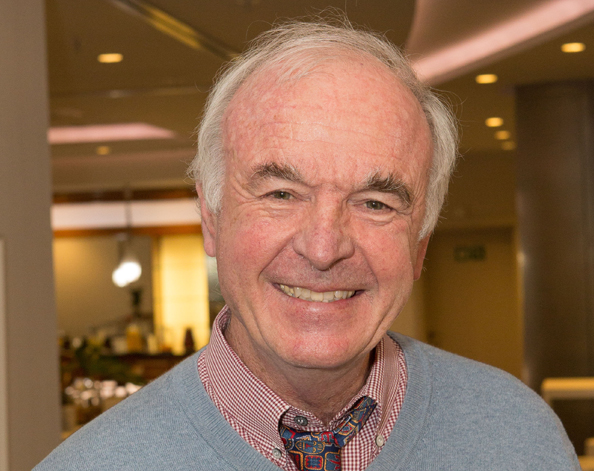From corruption to economic freedom and land reform, scenario planners are keeping their eyes on various “flags” that change from red to amber and green to indicate which direction the South African economy may go.
Currently, the picture is quite positive with a 60% chance that the country will reverse the negative economic trends of recent times. But there’s also a sobering 30% probability of South Africa becoming “just another third world destination” and a 10% chance we will become a “failed state”.
This overview was delivered by renowned futurist and scenario strategist, Clem Sunter at the recent Investec Business Matters gathering in Johannesburg where he sketched out the “flags” that are shaping the future of South Africa and the world.
Six flags in scenario planning
Sunter made his name by bringing scenario planning to South Africa and he has since introduced the concept of “six flags” to scenario planning. He is well known for his book, The Mind of a Fox, which indicated the possibility of terrorist attacks on US soil ahead of the 11 September 2001 attacks.
The world and South Africa are at such a crossroads at the moment, Sunter explained, with rising tensions between the US and China and Cyril Ramaphosa’s ascent to the presidency two of the latest developments that we need to make sense of.

Very few of us are able to lead a planned life, but we all get to a crossroads in our lives where we face key choices.
What will influence South Africa’s future
Sunter identified six flags to watch that will determine South Africa’s future:
1. Corruption
To what extent can perpetrators be pursued and corruption prevented in future?
2. Quality of infrastructure, healthcare and education
“No economy can grow sustainably without all three,” said Sunter.
3. Leadership
“Do we have a leadership that can galvanise the nation and inspire confidence?” Sunter asked.
4. Pockets of excellence
“South Africa has many, but they need to be encouraged and replicated,” said Sunter. This will ensure the country is able to compete on the global stage.
5. Economic freedom for all
“In the future, most people will need to create their own jobs rather than get a job. How do we promote entrepreneurship?” he asked.
6. Land reform
“This has the potential to escalate tensions between South Africans, but, if properly managed, can bring South Africans closer together,” argued Sunter.
Trends shaping the rest of the world
Sunter identified a number of flags on the global stage, including:
Religion
In addition to rising extremism in the Middle East, Sunter also noted the rise of the ecclesiastical right in the US as issues to watch. “To date, this flag has not emerged in South Africa,” Sunter noted, “But it is a flag we are watching closely.”
The rising role the East in global geopolitics
Sunter identified Russia (which produces 25% of Europe’s energy requirements), China (set to be the world’s largest economy by 2035) and North Korea (nuclear warhead capability) as ongoing sources of concern or instability in the world.
Aging populations
Many societies are getting much older, with Japan and Europe the standout examples. “How do we cope with the demographics of an older populations?” he asked.
Anti-establishment
“There is resentment and even fury towards the wealthy and political elite in many developed countries,” Sunter pointed out. He noted that this was exemplified by the election of Donald Trump, Brexit and the rise of populist governments in places like Italy, as well as the anti-immigrant sentiment in many countries.
The environment
Global warming raises numerous issues, such as community and species displacement. “Some are even warning of a sixth great extinction if we don’t tackle our environmental challenges properly,” Sunter noted.
Sunter pointed out that it’s not a matter of predicting the future, but rather of learning to make the right decisions at certain times.
“Very few of us are able to lead a planned life, but we all get to a crossroads in our lives where we face key choices,” he argued.
About the author

Patrick Lawlor
Editor
Patrick writes and edits content for Investec Wealth & Investment, and Corporate and Institutional Banking, including editing the Daily View, Monthly View, and One Magazine - an online publication for Investec's Wealth clients. Patrick was a financial journalist for many years for publications such as Financial Mail, Finweek, and Business Report. He holds a BA and a PDM (Bus.Admin.) both from Wits University.
Receive Focus insights straight to your inbox




